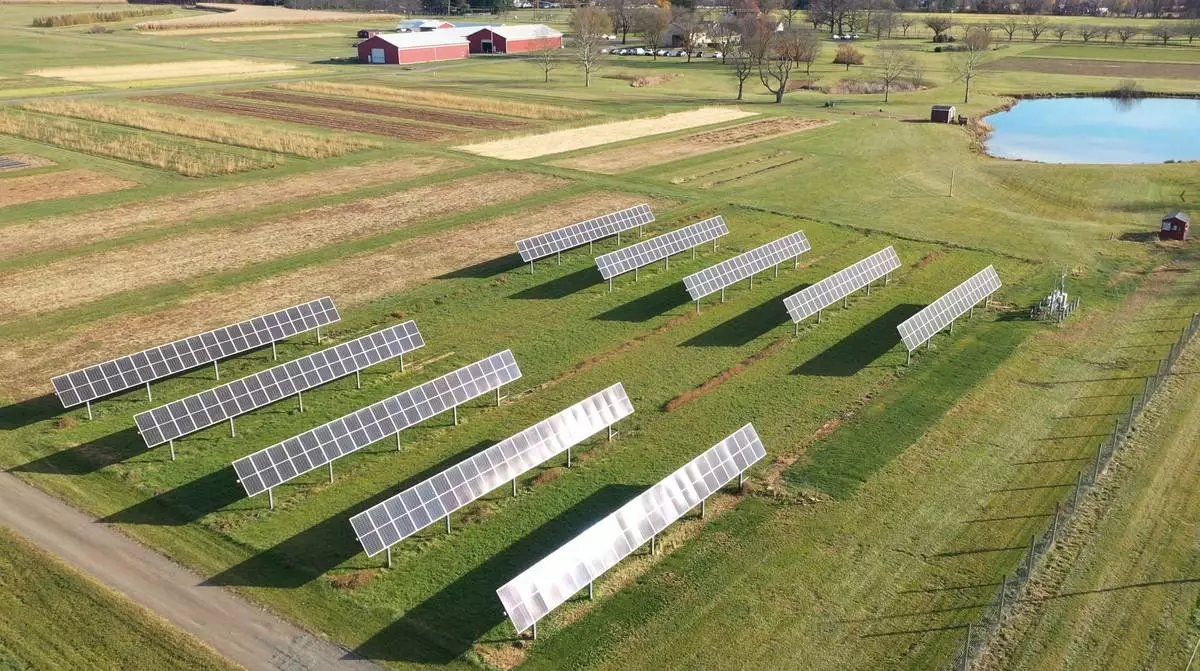SAN FRANCISCO (AP) — They know chronic back pain from couch surfing while pregnant. They tuck their children in at bedtime in the backs of cars and under bridges. Once their kids are asleep, and only then, do they let themselves cry.
Since January, a group of eight San Francisco mothers have met regularly as part of a local nonprofit's pilot program to share their stories and learn to advocate for the needs of families like theirs experiencing homelessness.
“I feel like I failed my kids,” says Teniah Tercero, breaking into tears as she talked about how she hates exposing her three young daughters to the open drug use of the city’s gritty Tenderloin neighborhood where they sleep at a shelter.
The room falls quiet. Christiana Porter, a fellow mom, gently pats Tercero’s shoulder as someone else passes over a box of tissues.
“I know the feeling," adds Danica Gutierrez, also a mother of three girls.
Gutierrez, 29, was skeptical about relaying some of the hardest moments of her life with people who were strangers.
“Then after being in the group, I started realizing that all these ladies have a strong voice,” she said, “and maybe our voices put together could be strong enough to make a difference in someone else’s life.”
The women are on the Family Advisory Committee, a program launched by San Francisco nonprofit Compass Family Services this year to empower homeless people to better serve their needs.
They have learned how the city's budget process works and met with politicians, sharing personal experiences and insight into what the city’s Department of Homelessness and Supportive Housing and nonprofits should be providing.
Broadly, the women describe a homeless services system that is confusing and even hostile, with websites that lack clear information and staff who can feel dismissive.
They want housing for families away from people struggling with drug addiction or behavior issues, and staff trained to welcome homeless families. More money, they say, should be spent on housing rather than short-term shelters.
They also want families to be given clear instructions about which phone numbers to call and when to maintain their place in line for housing. They want caseworkers to return their calls, even if there's no new information to report. They suggest nonprofits stock practical goods such as rain covers for baby strollers and children’s clothing for special occasions, like graduation.
In telling their stories to help others, the women have found a welcome sisterhood.
Some in the group have experienced domestic violence. One mother recently arrived in San Francisco from Nicaragua and, with her husband, kept watch over their daughter, 9, when the family slept outside under blankets and on cardboard. A third-generation San Franciscan sleeps on a foldout couch in her parents’ living room.
Their quest is for a safe, stable home in a city where the median monthly rent is $3,300 and the median price of a house is $1.4 million.
Three years ago, Gutierrez and her girls were sleeping on floor mats at a school gymnasium that doubled as a shelter. Now, she's in a subsidized three-bedroom apartment with a rooftop garden in a building with on-site childcare and case management.
The younger girls, 7 and 8, share a cheerful bedroom brimming with library books and art supplies while their sister, 11, has her own room. In the tiny kitchen, Gutierrez has written “good morning, little children” on a piece of chalkboard. One wall of her bedroom is crowded with her girls' school achievement certificates.
But neighbors in the “permanent supportive housing” site include people struggling with addiction and mental illness and she doesn’t feel her family is safe.
“I just hope that it’s touching the politicians’ hearts a little bit,” she says.
For years, tent encampments made up primarily of adults without children who often used illegal drugs and blocked sidewalks, dominated the national debate over people living on the streets. The issue boiled up to the U.S. Supreme Court, which ruled Friday that cities can enforce bans on homeless people sleeping outdoors in public places.
But family homelessness is growing, due to migration and an uneven post-pandemic recovery as COVID-era benefits and government protections against evictions expired.
A federal count found more than 50,000 families with at least one adult and one child experiencing homelessness in 2023. The 186,000 adults with children in those families is up 16% from the previous year, according to a one-night tally by the U.S. Department of Housing and Urban Development. Most of the growth was attributed to New York, where migrants are filling New York City’s shelters.
In California, the count found more than 25,500 homeless adults with children, including about 600 in San Francisco. The city has 400 spots for families that can accommodate about 750 people, many in private rooms.
As of mid-June, there were more than 500 families on San Francisco’s wait lists for emergency shelter and hotel vouchers.
“Babies cannot wait,” says Porter, 34, an eyebrow esthetician with show-stopping braids.
She fell behind on rent during the pandemic, working multiple, low-wage jobs with five children and limited help for child care.
Jennifer Johnson, 38, grew up homeless, and thought she had left that life. Then she lost her job managing a real estate office at the start of the pandemic, and her apartment when her landlord decided to sell.
Johnson, an aspiring chef, crashed with family and friends when she became pregnant with her first child. When Johnson, who now has two boys, 1 and 3, finally reached out for help, she was told her situation was not dire enough for housing.
“The powers-that-be need to see how this works," she said, “and how it impacts people.”
Shelter staff turnover is high from burnout and low pay and there are not enough beds or rooms to house everyone in need, much less ensure that homeless families are kept separate from other adults with substance abuse or other problems.
At the end of May, the women descended on City Hall for 30-minute meetings with members of San Francisco’s Board of Supervisors. Despite one testy exchange with a supervisor that ended with tears, they declared it a success.
San Francisco Mayor London Breed has pledged $50 million for more emergency shelter and housing for families, “an unprecedented level of resources,” said Hope Kamer of Compass, which is working with the city to implement some of the suggestions from the women.
Albert Townsend of the National Alliance to End Homelessness works to ensure that people sharing their stories are groomed for leadership roles where they can have more impact.
“You got more hearts, hands and minds at the table,” he said.
Bleary-eyed from working a graveyard shift staffing a public restroom, Tercero pushed a tire swing on a recent afternoon as her daughters Amairany, 8, Rojelia, 7, and Valentina, 4, laughed.
They have lived in many places, from motel rooms to the red Dodge Durango that has doubled as their home — made cozy with Mickey Mouse shades on its rear windows and dashboard trim painted with red nail polish.
The city can help families by investing in places that feel like a home instead of shelters that can be dangerous and onerous, with rules and reprimands over meal-time signups and curfew, Tercero said. A place, she said, where “you can feel like a person, like a mother instead of like a prisoner.”
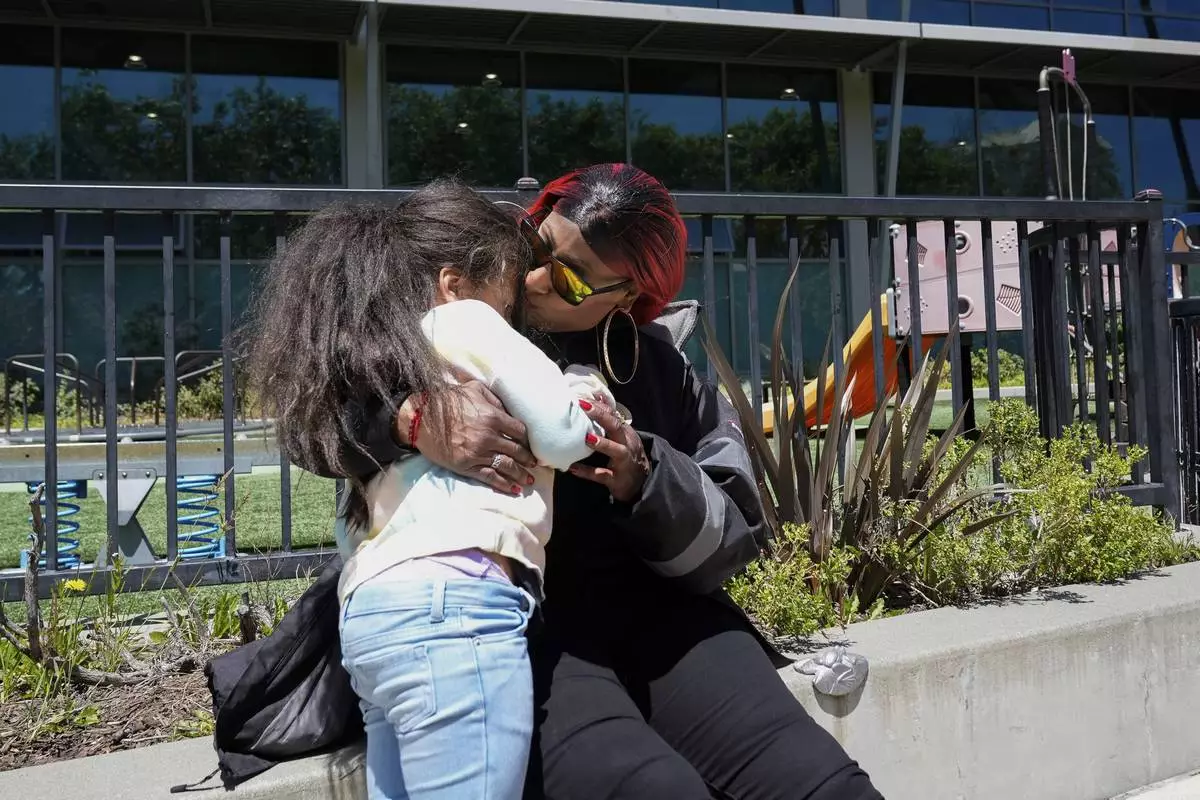
Teniah Tercero kisses her daughter Valentina, 4, while spending time at a park Thursday, May 23, 2024, in San Francisco. (AP Photo/Godofredo A. Vásquez)
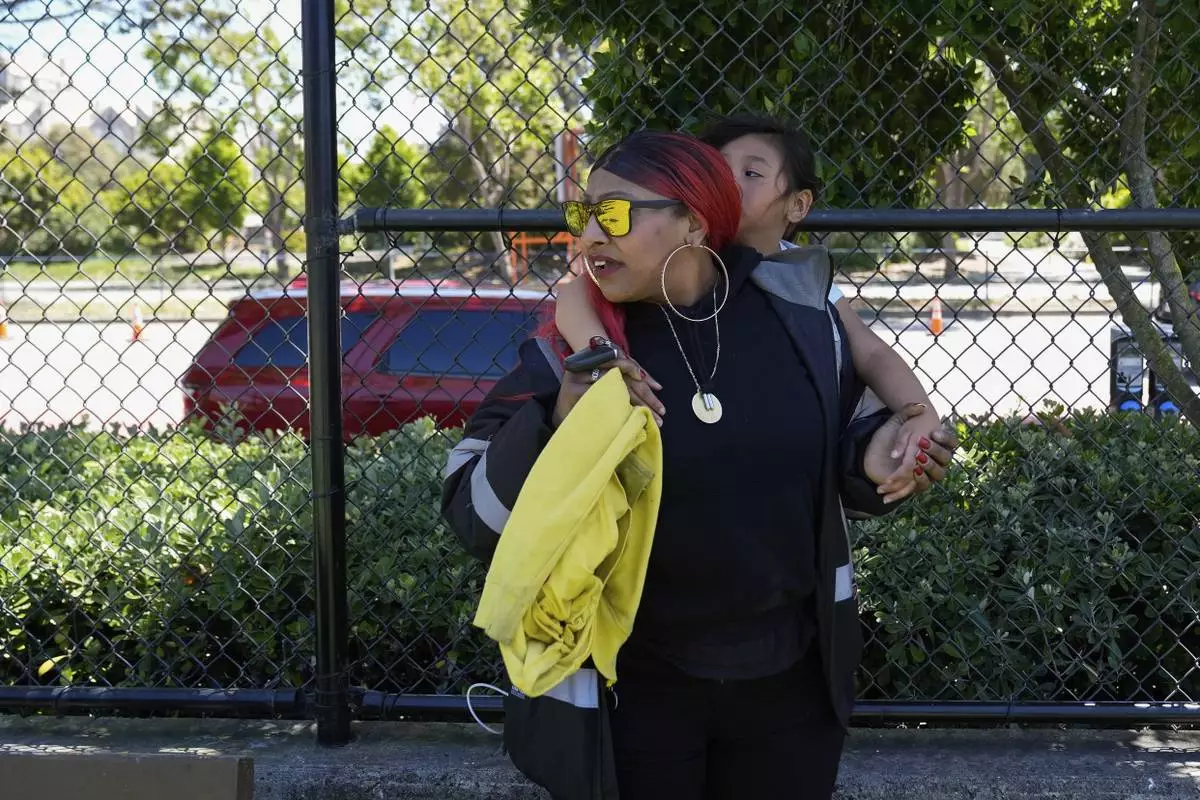
Teniah Tercero gives her daughter Rojelia, 7, a piggyback ride while at a park Thursday, May 23, 2024, in San Francisco. (AP Photo/Godofredo A. Vásquez)
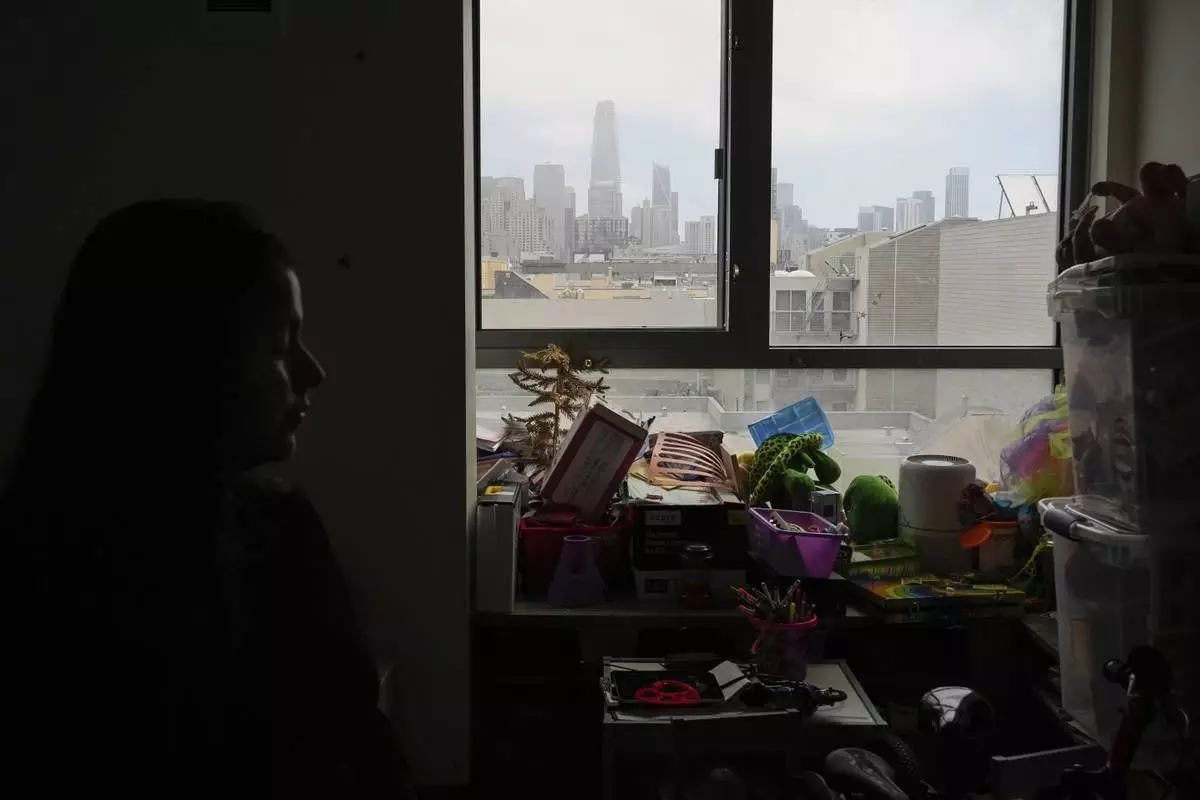
Danica Gutierrez walks through her daughters' bedroom Thursday, June 13, 2024, in San Francisco. (AP Photo/Godofredo A. Vásquez)
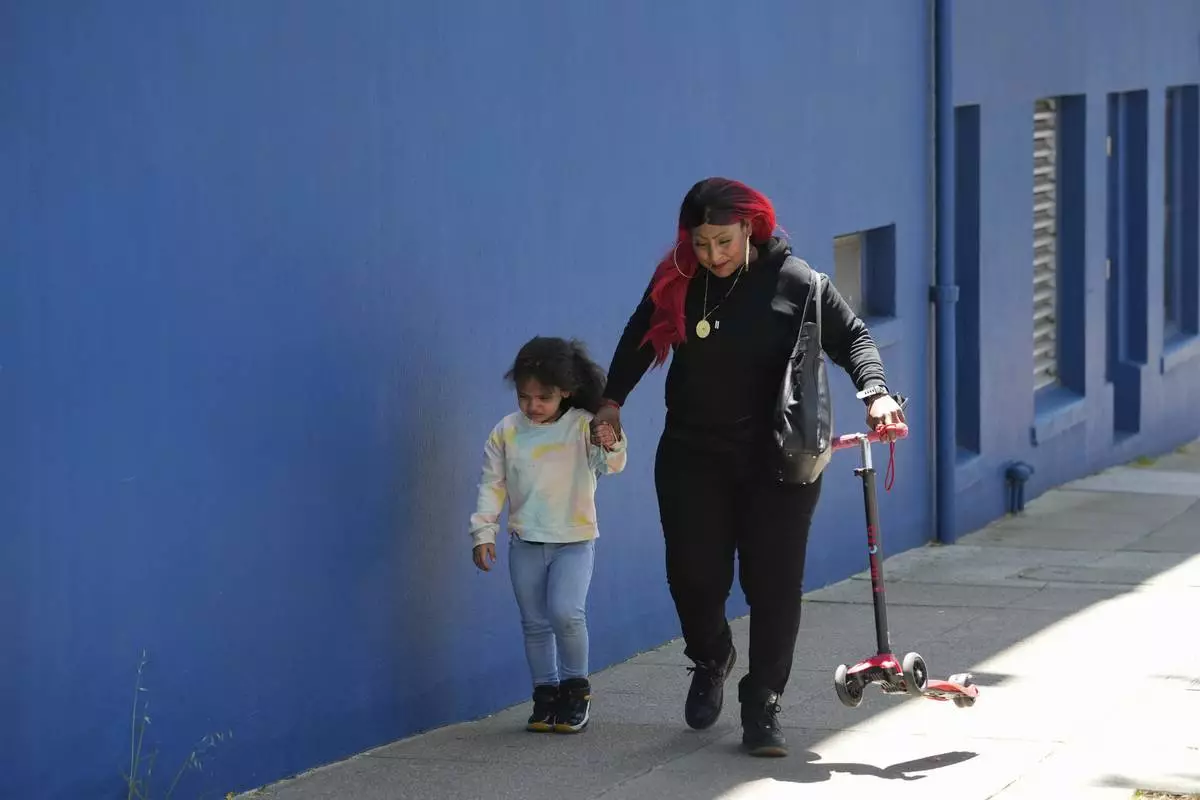
Teniah Tercero, right, walks with her daughter Valentina, 4, after playing with the family's scooter Thursday, May 23, 2024, in San Francisco. (AP Photo/Godofredo A. Vásquez)
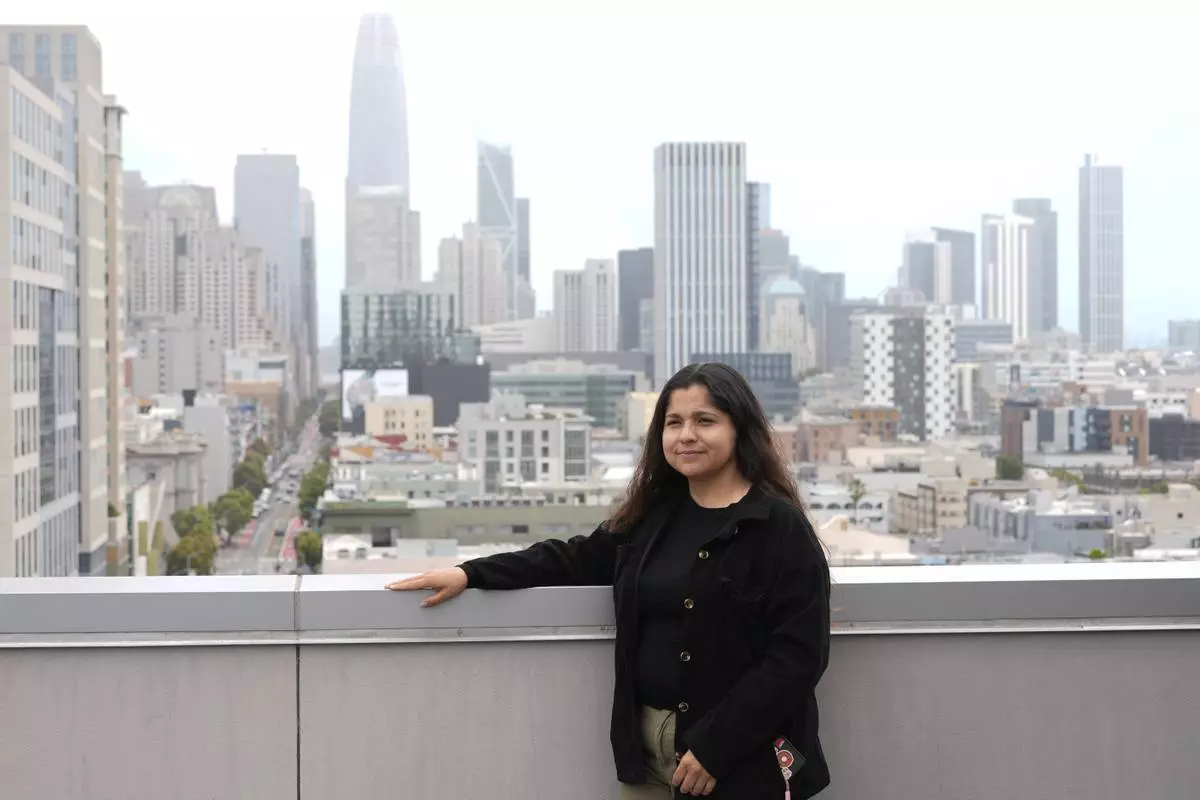
Danica Gutierrez is photographed on the rooftop of her apartment complex Thursday, June 13, 2024, in San Francisco. (AP Photo/Godofredo A. Vásquez)
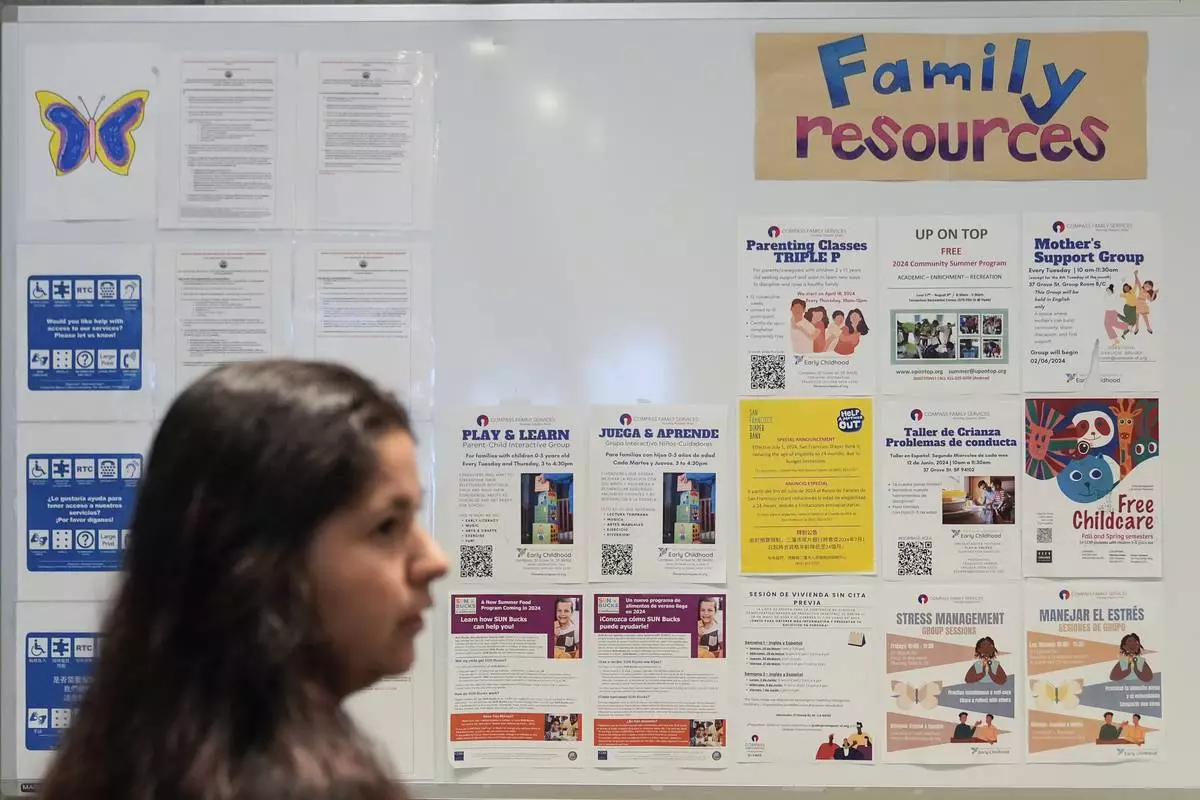
Danica Gutierrez talks about the family services available at her apartment complex Thursday, June 13, 2024, in San Francisco. (AP Photo/Godofredo A. Vásquez)
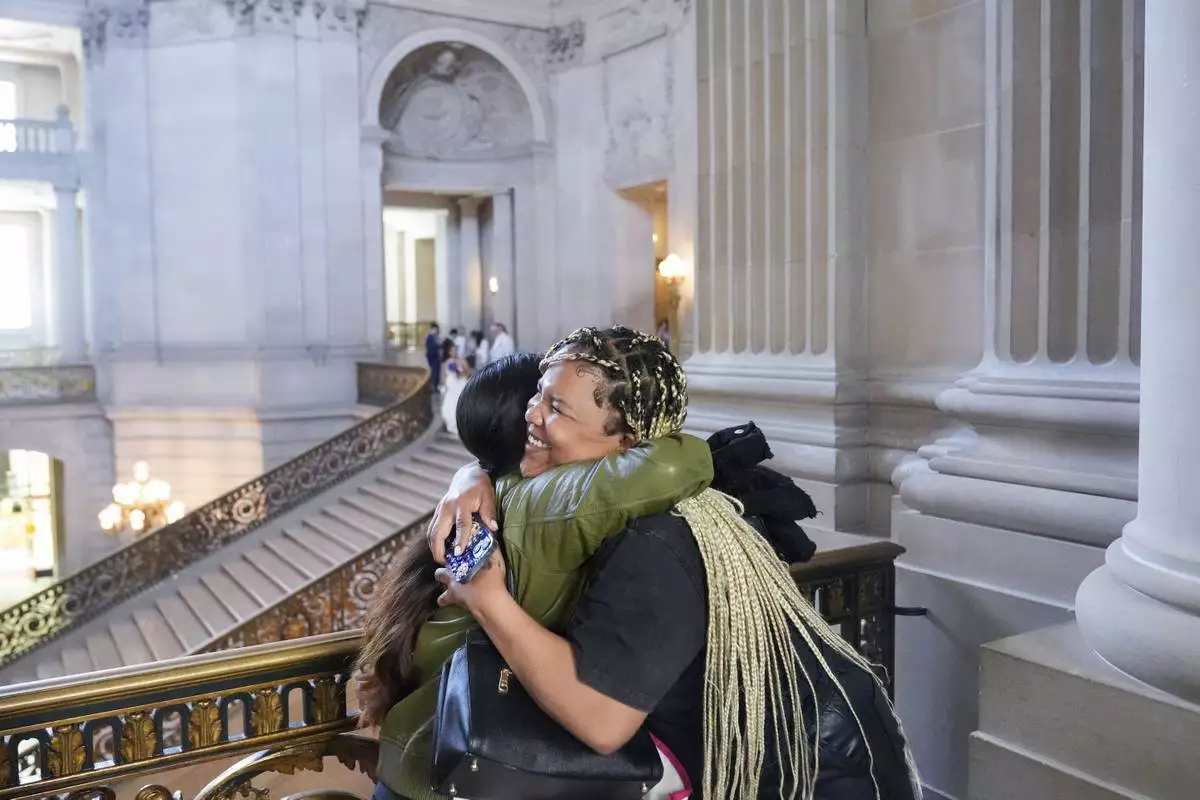
Danica Gutierrez, left, and Christiana Porter hug after they met with politicians at City Hall, Tuesday, May 21, 2024, in San Francisco. Gutierrez, Porter and six other women are part of Family Advisory Committee, a pilot program by San Francisco nonprofit Compass Family Services, working to engage more homeless parents in advocacy as family homelessness surges in the U.S. (AP Photo/Godofredo A. Vásquez)
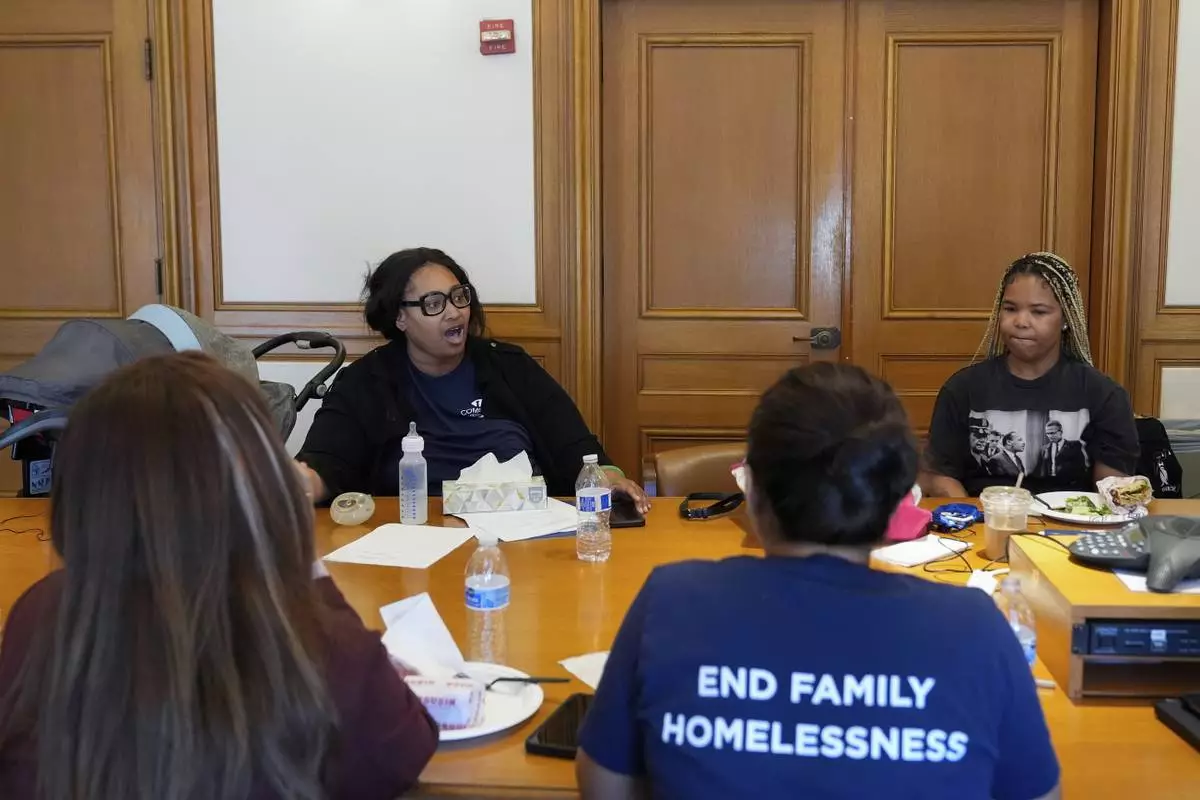
Jennifer Johnson, top left, talks with fellow members of the Family Advisory Committee as the group of eight mothers met with politicians in City Hall, Tuesday, May 21, 2024, in San Francisco. (AP Photo/Godofredo A. Vásquez)
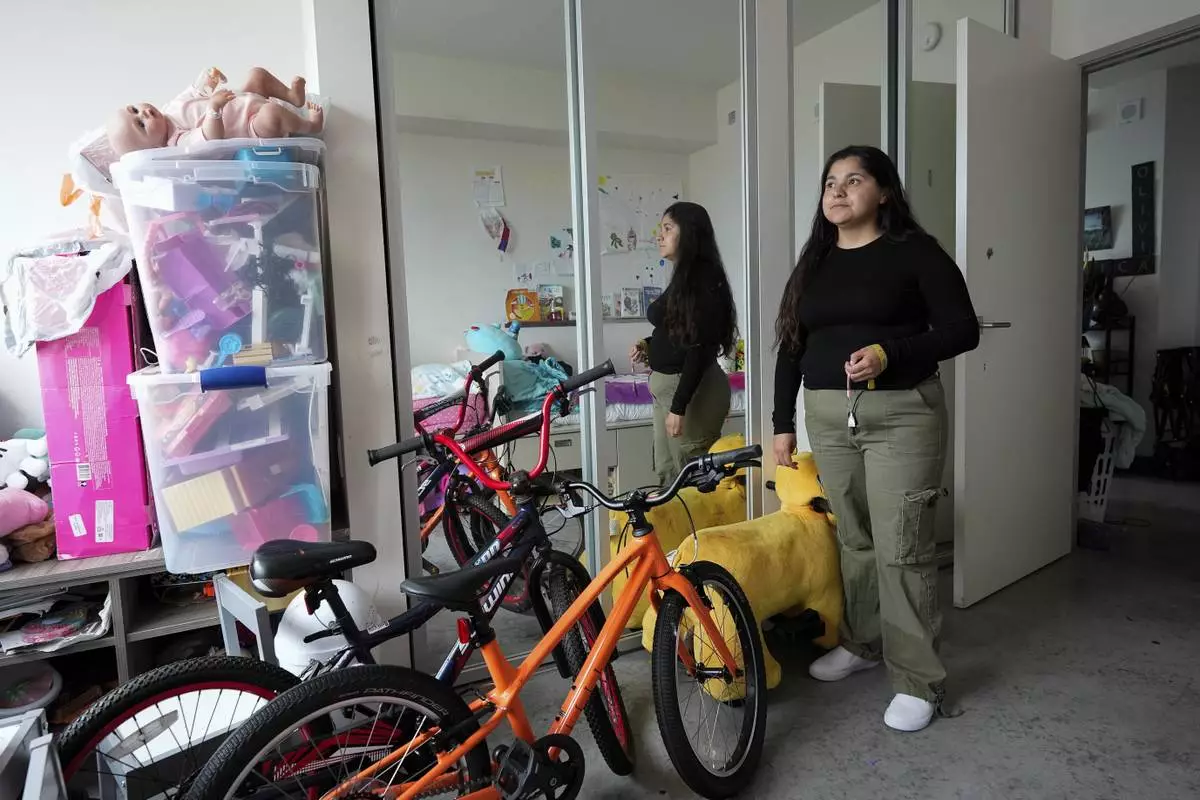
Danica Gutierrez is photographed inside her daughters' bedroom Thursday, June 13, 2024, in San Francisco. Gutierrez and her three daughters moved into a three-bedroom unit in a complex with wi-fi and a rooftop garden, but says she doesn't feel her girls are safe since some of her neighbors are struggling with addiction and mental illness. (AP Photo/Godofredo A. Vásquez)

Teniah Tercero watches as her daughters play at a park playground Thursday, May 23, 2024, in San Francisco. (AP Photo/Godofredo A. Vásquez)













